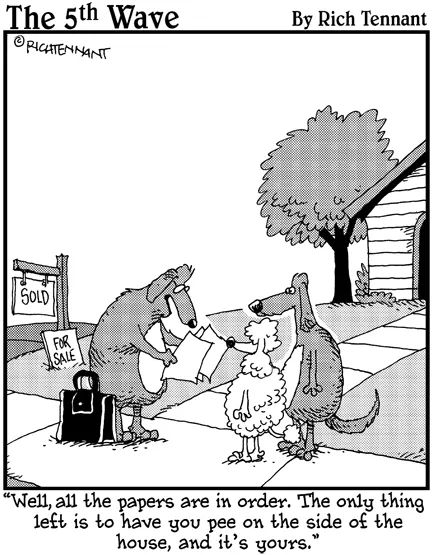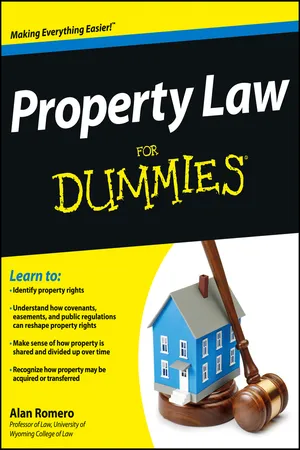

- English
- ePUB (mobile friendly)
- Available on iOS & Android
Property Law For Dummies
About this book
The easy way to make sense of property law
Understanding property law is vital for all aspiring lawyers and legal professionals, and property courses are foundational classes within all law schools. Property Law For Dummies tracks to a typical property law course and introduces you to property law and theory, exploring different types of property interests—particularly "real property."
In approachable For Dummies fashion, this book gives you a better understanding of the important property law concepts and aids in the reading and analysis of cases, statutes, and regulations.
- Tracks to a typical property law course
- Plain-English explanations make it easier to grasp property law concepts
- Serves as excellent supplemental reading for anyone preparing for their state's Bar Exam
The information in Property Law For Dummies benefits students enrolled in a property law course as well as non-students, landlords, small business owners, and government officials, who want to know more about the ins and outs property law.
Trusted by 375,005 students
Access to over 1 million titles for a fair monthly price.
Study more efficiently using our study tools.
Information










Table of contents
- Cover
- Title Page
- Table of Contents
- Introduction
- Part I: Introducing Property Law
- Part II: Understanding Real Property Rights
- Part III: Looking at Shared and Divided Property Ownership
- Part IV: Acquiring and Transferring Property Rights
- Part V: The Part of Tens
Frequently asked questions
- Essential is ideal for learners and professionals who enjoy exploring a wide range of subjects. Access the Essential Library with 800,000+ trusted titles and best-sellers across business, personal growth, and the humanities. Includes unlimited reading time and Standard Read Aloud voice.
- Complete: Perfect for advanced learners and researchers needing full, unrestricted access. Unlock 1.4M+ books across hundreds of subjects, including academic and specialized titles. The Complete Plan also includes advanced features like Premium Read Aloud and Research Assistant.
Please note we cannot support devices running on iOS 13 and Android 7 or earlier. Learn more about using the app
